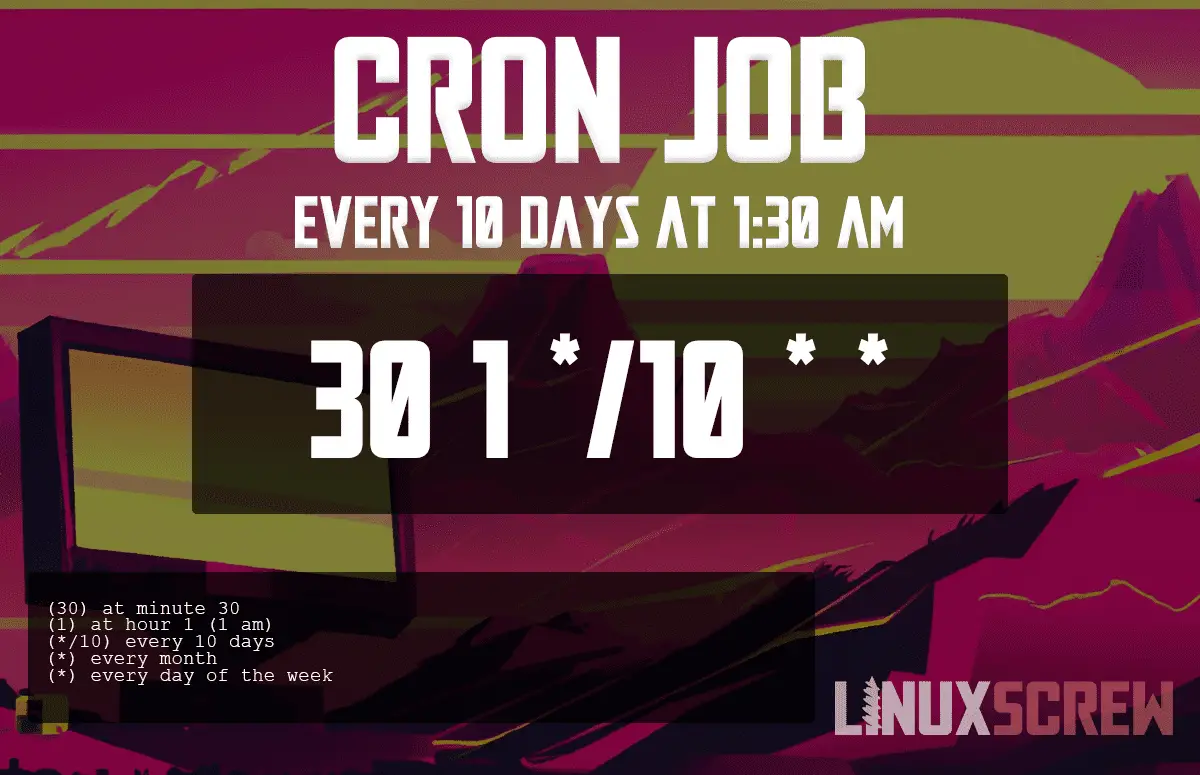This page will help you quickly and easily set up a cron job to run every 10 days at 1:30 am.
The Cron Job/Crontab
To have your task run at this frequency, use the following cron:
30 1 */10 * *
This cron command translates to the following (in Human-Readable format):
“Every 10 days at 1:30 am.”
What is a Cron Job & Crontab?
A cron job is a task that is scheduled to run at a specific time or interval. Cron jobs are typically used for maintenance tasks, such as backing up data or updating software.
Crontab is a file that contains instructions for the cron daemon, which is a program that executes commands at specified intervals. Crontab files are typically edited with the crontab command, which allows users to create, edit, and delete their own crontab files.
Cron Fields
Every cron job uses five fields. Here is an explanation of what each field does in this cron, which runs “every 10 days at 1:30 am“:
FUN FACT: If a cron job is not properly configured, it might never execute – so make sure you double-check your settings before setting one up!.
Use Cases
You might want to set up a crontab or cron job to run every 10 days at 1:30 am for several reasons, including:
- Automatically update a program
- Perform maintenance tasks, like cleaning up temporary files
- Generate reports
- Fetch data from an external source
Similar Cron Jobs
You might also want to run a crontab:
- every 10 days
- every 8 days
- every 7 days
- every 5 days
- every 2 days
- every 4 days at 6:30 pm
- every 5 days at 3:00 am
- every 10 days at 1:00 am
FUN FACT: If you need to delete a cron job, simply remove the corresponding line from the crontab file and save your changes..
Wrapping Up
In this article, you learned how to set up a cron job that runs every 10 days at 1:30 am. Please share this page with friends and colleagues if you find it useful.
If you have any questions, please don’t hesitate to comment below.
If you are looking for cron jobs that run at certain minutes, hours, days, weekdays, or months, or if you are looking for miscellaneous cron jobs, then check out our relevant sections, or visit our cron job cheat sheet for a list of hundreds of popular cron jobs.

